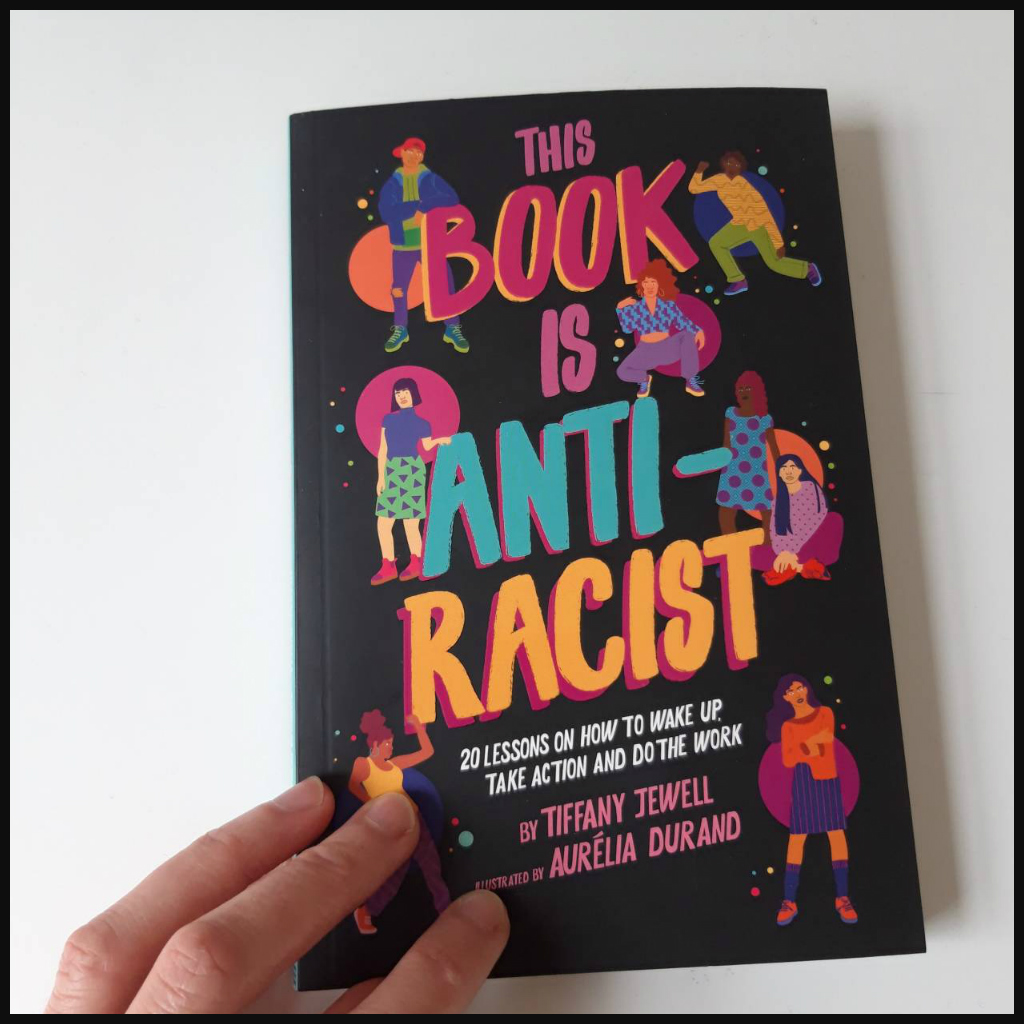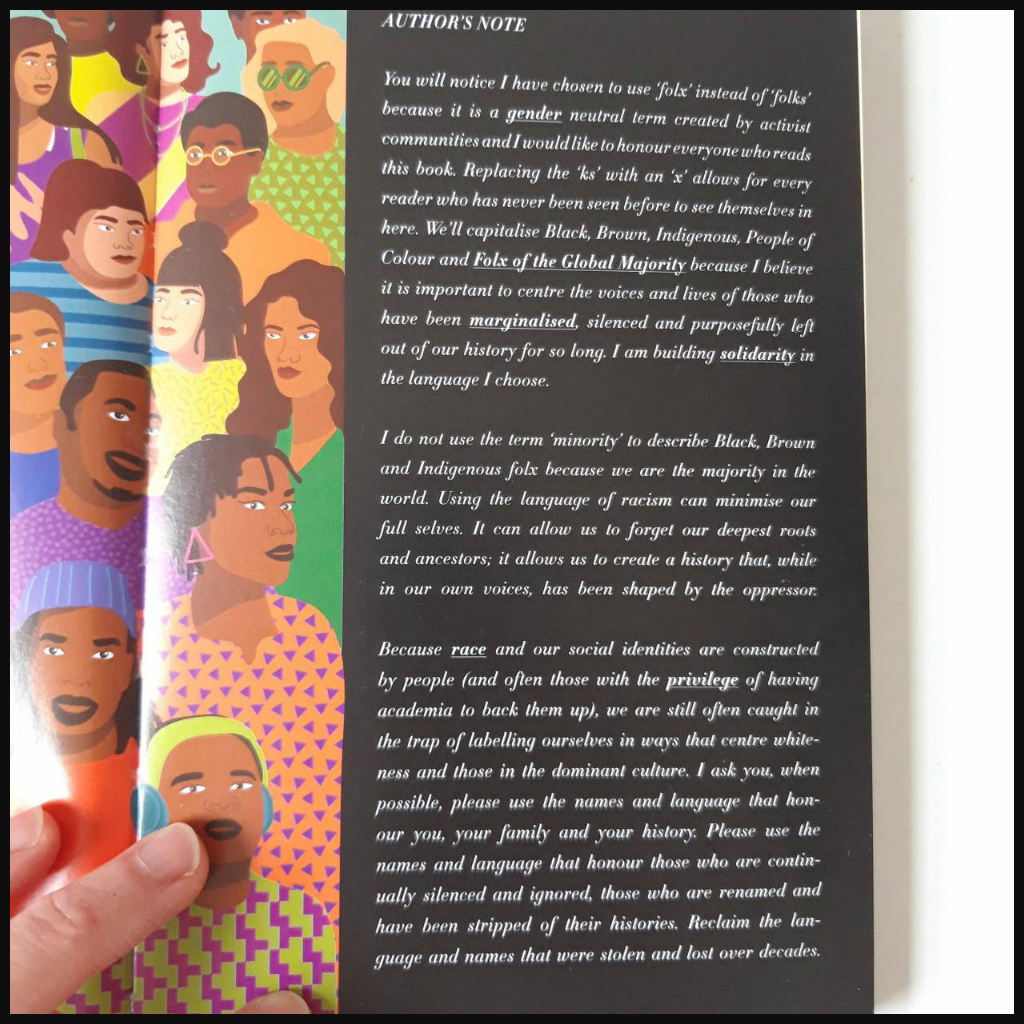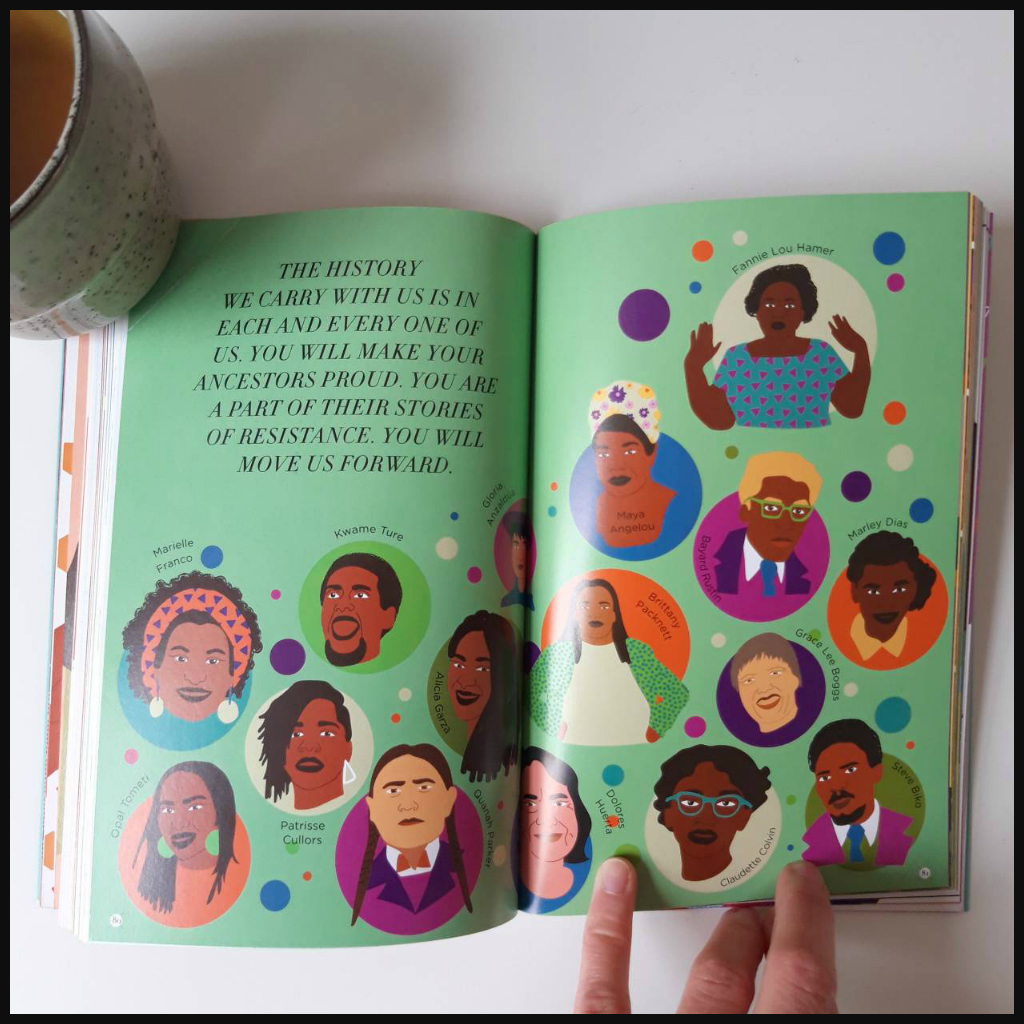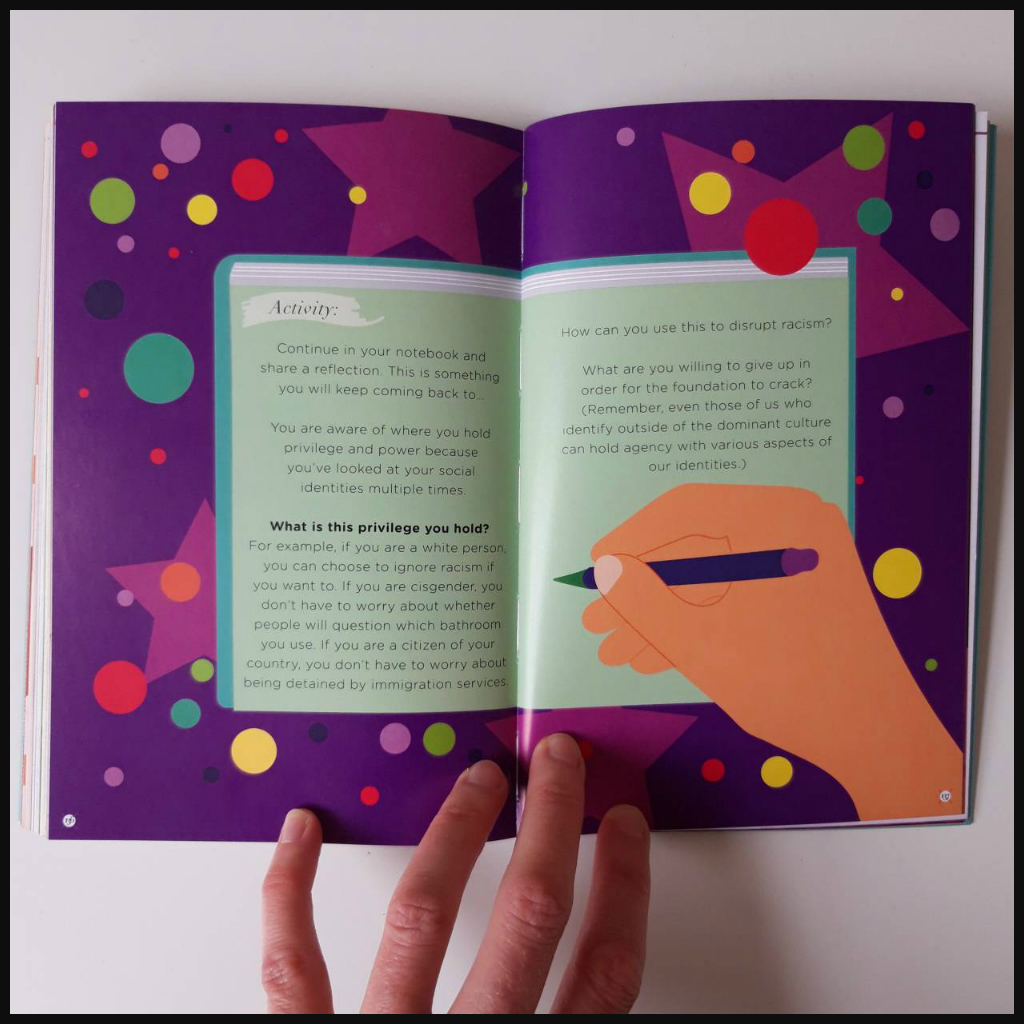Book review: This Book is Anti-Racist by Tiffany Jewell
I couldn’t be more excited that Tiffany Jewell – a Black bi-racial Montessori educator – is a #1 New York Times bestseller for her book “This Book is Anti-Racist.” I bought two copies – one for my home and one for my classroom. Because even though this book was written for young adults, it’s a book that every adult will learn something from too.
I definitely did.
So here are 5 of my takeaways from this book. And there are so many more. So buy yourself a copy and one for a friend. Let’s support this book and make it mandatory reading for all.

1. Learning about language
One thing I’m sure of is that I’m never going to get it all right or say exactly the right thing. But it’s super helpful when you have a guidebook to help you along the way.
The author’s note on page 3 already has some gems. Did you know that “folx” can be used instead of “folks” to make it gender neutral? That we can capitalise Black, Brown, Indigenous, People of Colour to centre their voices where they have so often been silenced? That instead of using “minority,” the truth is they are the Folx of the Global Majority?
I also learned the difference between calling people in and calling people out. There’s an excerpt from the book here to learn more.

2. Getting out of the imaginary box
I love these two quotes from the book:
The book starts with understanding our own identity. So much of the time we are trying to fit in.When we understand ourselves, we are more able to see others as they are, and through the book we learn how we can use any privilege we have to open doors for others.
There are powerful exercises to do – even for us adults – to understand who we are, what is the dominant culture, and what is personal and institutionalised racism. When we understand it, we can see it, and help to undo it.
The book also includes some startling statistics including these about popular culture: “About 7% of all new YA and children’s books are written by Authors of the Global Majority. Black, Indigenous, Asian and Latinx folx are still greatly under-represented in movies; close to 75% of speaking roles in films and television are given to white actors.” Representation matters.
3. Understanding our history
Tiffany makes the history of racism accessible to all folx. And uses examples from all over the world. There is the history from colonisation to assimilation (indoctrinating Indigenous folx through the coloniser’s educational system) to the current education system, and the history of resistance too.
A lot of this history has been new to me as I’ve started digging in since George Floyd’s death and the current uprising. History I never learned or which was taught in a dominant culture way, for example that getting Indigenous populations to assimilate was a good thing. And what is most shocking is that much of it is in recent history and still playing out today.
It’s not a level playing field. Whilst there are certainly success stories in the Black community like Oprah and Obama, this is not the reality for many Folx of the Global Majority.

4. What you can do if there is injustice
This is a book of action – the subtitle is no less, “20 lessons on how to wake up, take action and do the work.” It’s empowering to know how to respond to racism.
When we see an injustice, Tiffany offers examples like asking an adult to intervene, recording on our telephones, offering help, being a witness, or asking others to stop and be witnesses too.
One example I love is that Tiffany describes herself as an interrupter and encourages us to interrupt where we see injustice. “I can say, “That’s not okay!””
5. How to spend our privilege – working in solidarity
Some of us may think that we are doing enough. Tiffany calls us to see how we can use any privilege we have to help others.
We can recognise where we do have influence and disrupt there.
We can look at redistributing resources to support BIPOC.
We can acknowledge our mistakes and learn from them.
We can read more books from BIPOC authors.
We can stand up to police brutality.
We can call out micro-aggressions.
And so much more. You’ll just have to buy the book and learn more from Tiffany.

And if you didn’t already notice how much I love this book, I also think the illustrations in the book are genius, done by Aurélia Durand.
Here’s a link to Tiffany’s bookshop.org list so you can buy straight from her. And be sure to check out her interview with Layla F. Saad on the Good Ancestor Podcast that I really enjoyed, as well as her Patreon here.

Simone Davies has more than 20 years’ experience as an AMI Montessori educator. Simone is the author of “The Montessori Toddler” and co-author of “The Montessori Baby” and “The Montessori Child” books, comprehensive guides to raising children in a Montessori way. She currently runs parent-child Montessori classes in Amsterdam at her school Jacaranda Tree Montessori. She also has a popular blog, instagram and podcast “The Montessori Notebook” and is mother to two young adults.